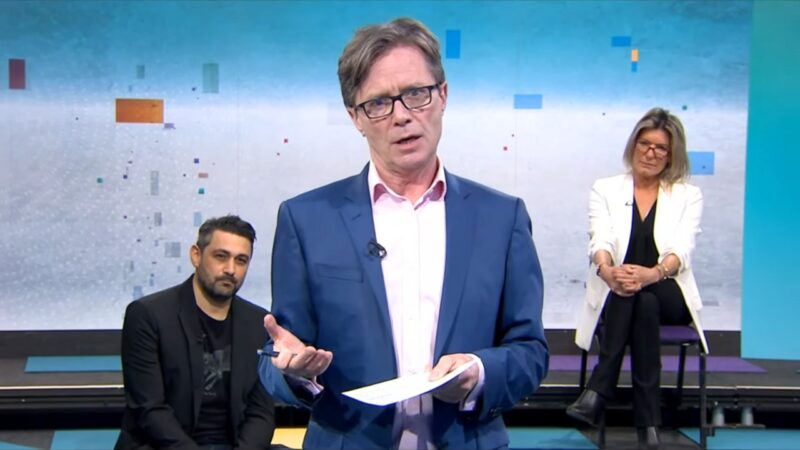The television landscape is littered with shows that have come and gone, each leaving its mark on the collective cultural memory. One such program is “The Big Questions,” an interfaith dialogue and ethics television program that graced our screens for many years. But what happened to it? Here’s an in-depth look into the history, significance, and eventual fate of “The Big Questions.”
A Brief Overview
History and Premise
Launched in 2007 by the BBC, “The Big Questions” was presented by Nicky Campbell and aimed to delve into ethical and religious debates that stirred society. Every week, the program would assemble a panel of experts, faith leaders, and the public to discuss and debate a range of topical issues.
Popularity and Influence
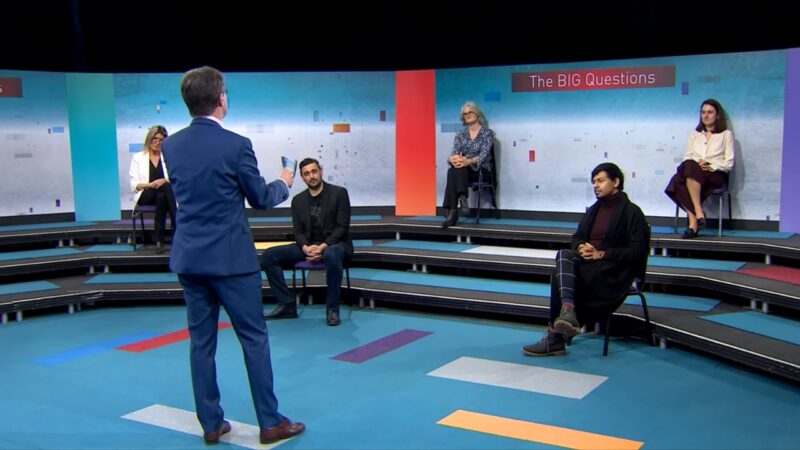
The program quickly garnered a reputation for its no-holds-barred approach, fostering open dialogue on some of the most sensitive and contentious topics. It became a platform where religious leaders from various faiths like atheists and agnostics, and the general public could have honest and sometimes heated conversations.
“The Big Questions” was unique in its mission to address questions that other mainstream media often avoided or addressed superficially.
Why Did It End?
While “The Big Questions” enjoyed a robust viewership for several years, like all television programs, it saw its fair share of challenges.
Ratings and Budget Constraints
As the years went by, fluctuating ratings became a concern. TV is a competitive landscape, and with the rise of streaming platforms and changing viewer preferences, traditional programs face challenges. Budget constraints played a part. High-quality productions, especially those involving live debates and a wide range of panelists, can be costly to maintain.
Controversies and Criticisms

- While the show aimed to foster dialogue, it sometimes was criticized for not representing all viewpoints or for framing debates in ways that seemed biased to some viewers.
- On several occasions, the choice of panelists or the handling of certain topics led to public outcry or backlash.
Shifting Media Landscape
The rise of social media platforms and YouTube meant that many of the discussions that “The Big Questions” aimed to host were already happening online, often in real time. With platforms like Twitter and Facebook allowing for instantaneous debate, traditional television formats faced competition.
Legacy and Impact
Despite its end, “The Big Questions” left a lasting impact on television and public discourse.
Fostering Interfaith Dialogue
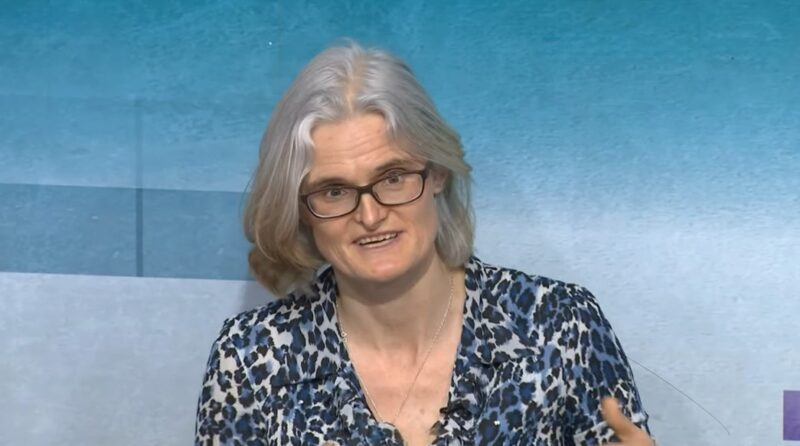
At a time when the world seemed increasingly polarized, “The Big Questions” provided a space where representatives from various faiths could engage in dialogue. It demystified many religious beliefs for the wider public and shed light on commonalities between faiths.
Raising Ethical Questions
Beyond just religious debate, the program also tackled ethical dilemmas, ranging from medical ethics to societal norms. It made audiences question and think deeply about their own beliefs and the larger ethical implications of societal decisions.
Inspiring Other Programs
While “The Big Questions” might have ended, its format and premise inspired other shows and online platforms to engage in similar discussions. The desire for such content didn’t disappear; it simply evolved with the changing media landscape.
The Evolution of Dialogues in the Digital Age
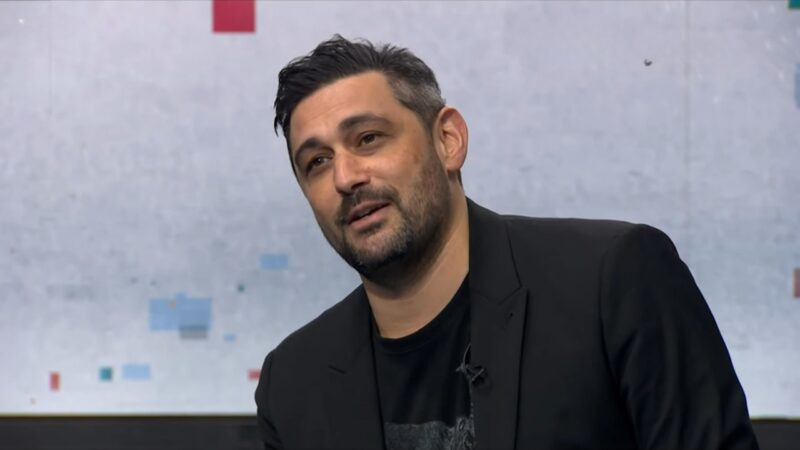
With the ending of “The Big Questions,” one might wonder where these crucial conversations migrated. The digital age has provided ample platforms, some of which have taken up the mantle to address contentious issues.
Podcasts and Webinars
- Platforms such as Spotify, Apple Podcasts, and Google Podcasts are now rife with series discussing religion, ethics, and societal norms.
- Webinars and online seminars have taken up the slack, providing audiences with more specialized and focused dialogues.
Social Media Panels
- Twitter Spaces and Clubhouse have become the new ‘go-to’ for real-time debates, where users can listen in on live discussions and sometimes even participate.
- Facebook and Instagram Live offer platforms for individuals, experts, and influencers to host sessions dedicated to complex subjects.
Online Journalism
- Platforms like Medium and digital-first news outlets like Vox and The Conversation regularly publish deep dives into topics formerly tackled by “The Big Questions.”
- These platforms allow for reader interaction, creating a dynamic debate space in the comments section.
Reflecting on the Programme’s Legacy
The void left by “The Big Questions” in the television realm is undeniable. But when we look around, it’s evident that its spirit lives on.
Spurring Grassroot Dialogues
- The format of the program, bringing together a diverse set of panelists, can be seen mirrored in local community gatherings and university panels.
- Educational institutions, in particular, have upped the ante, hosting interfaith and ethics symposiums inspired by the program’s format.
Influencing Television Programming
Following the end of “The Big Questions,” other TV channels attempted to fill the gap with similar, albeit sometimes more specialized, shows. The show’s influence can be seen in the narrative choices of documentary makers and the themes of newer debate-oriented programs.
What’s Next for Interfaith and Ethics Programming?
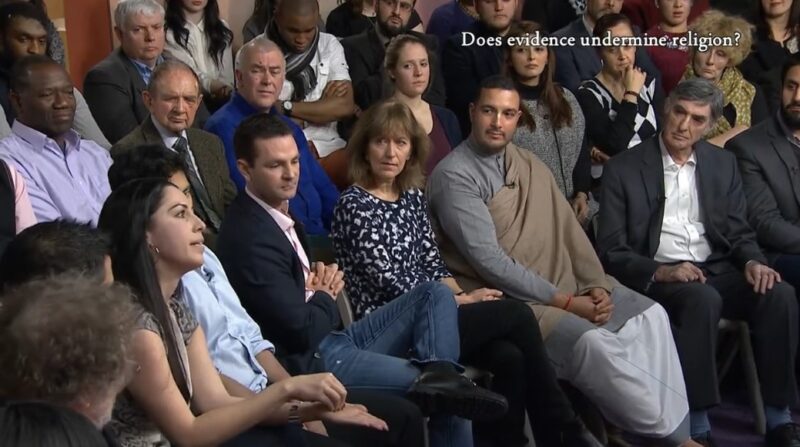
While the landscape of media is ever-changing, the need for platforms that discuss faith, ethics, and morality remains constant.
Augmented and Virtual Reality
As technology progresses, platforms like augmented and virtual reality could provide even more immersive debate experiences, literally allowing participants to “walk in someone else’s shoes.”
Global Collaboration
Given the easy connectivity of the digital age, future programs might witness collaborations between experts, leaders, and laymen from different corners of the world, providing a more global perspective on issues.
Youth Engagement
With Gen Z being more vocal and involved than ever in societal discussions, future platforms will likely be designed keeping their engagement in mind, utilizing mediums most familiar to them.
FAQs
Who was the host of “The Big Questions”?
The primary host was Nicky Campbell. He moderated the discussions and debates, ensuring a balanced representation of views.
How long was each episode of “The Big Questions”?
Typically, each episode was one hour long, allowing ample time for in-depth discussions on the topic at hand.
Were audience members allowed to participate in the debates?
Yes, the format of “The Big Questions” often included audience participation. This added a dynamic element to the debates, incorporating views from regular individuals, not just the panelists.
When and where did “The Big Questions” typically air?
It aired on Sunday mornings on the BBC. The timing allowed for a reflective start to the day, engaging viewers in thought-provoking discussions.
Were there any recurring panelists or experts on the show?
While the panelists often varied depending on the topic of discussion, there were some recurring experts and faith leaders who appeared multiple times due to their expertise or insights on certain subjects.
Has “The Big Questions” inspired international versions or similar shows in other countries?
While it was uniquely British, its format and the idea of engaging in deep interfaith and ethical discussions have inspired similar debate-centric shows in various countries, adapting to their specific cultural and societal contexts.
Final Words
“The Big Questions” was more than just a television program. It was a platform that dared to ask difficult questions, fostered dialogue, and bridged divides. While it may no longer grace our screens, its legacy continues to inspire and provoke thought in its audiences.
As media continues to evolve, there will always be a space for such important discussions, whether on television, online, or in new platforms yet to be imagined.
